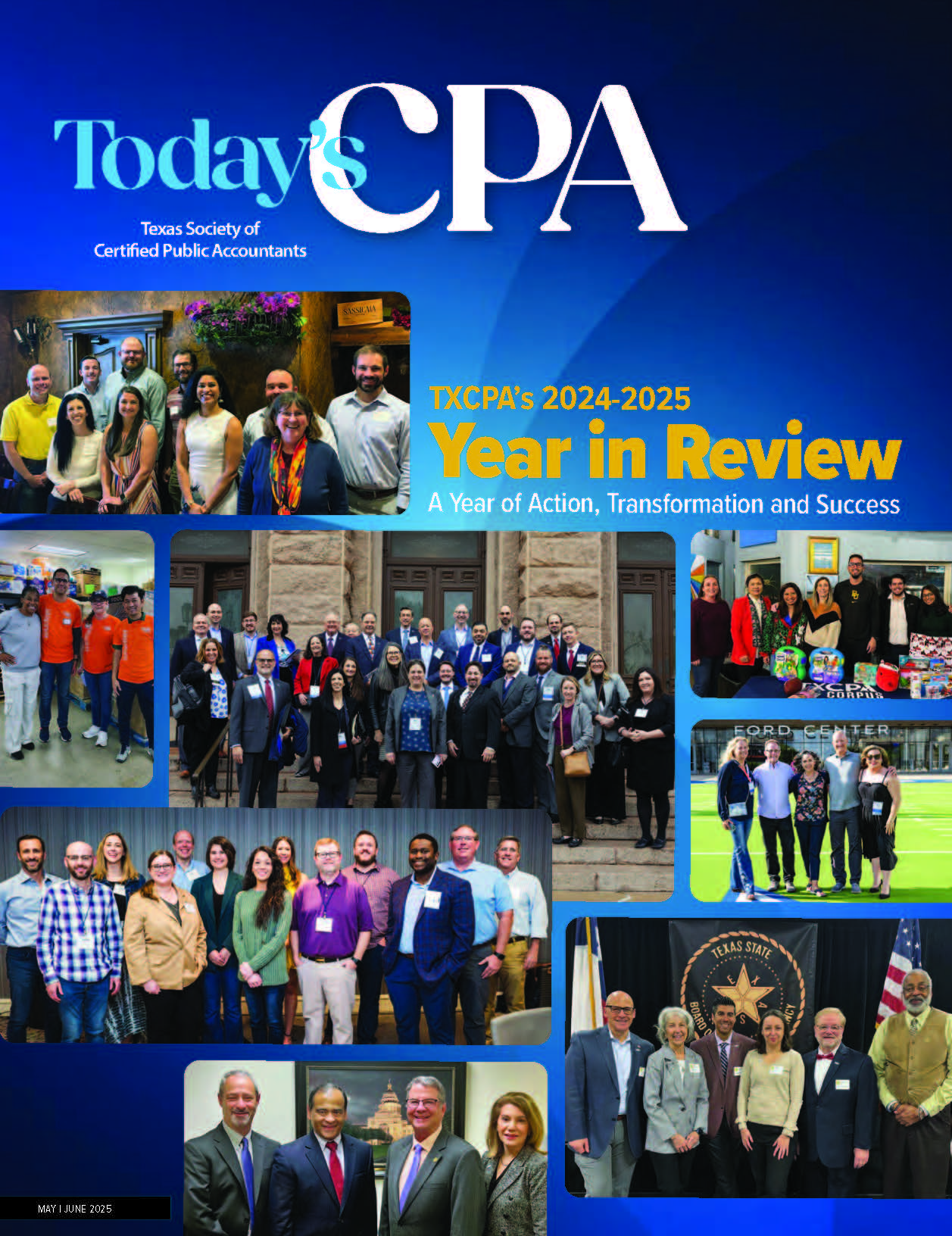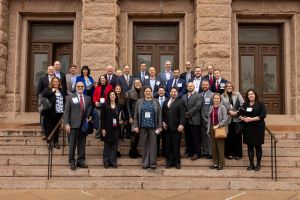The IRS in 2022: A Work in Progress
Funding problems, dysfunctional notices, missing guidance and inexperienced auditors: What you need to know to guide your clients through audits.
By Joshua D. Smeltzer, J.D.
The first thing you need to know is everyone out there hates you. The second is that you are vital to tax administration.” This was among the first advice I received as a new attorney at the Tax Division of the United States Department of Justice.
Working for the government is often a thankless job. Although I enjoy my private practice, I have great pride in my history representing the United States. The recent pandemic exposed cracks in the administration of the tax system that society was happily ignoring. Efforts are underway to increase funding and use that new funding to fix problems, but those efforts will take time.
Taxpayers and their advisors, however, have problems that need resolution in the broken system. Doing so requires recognizing the limitations in the current system, navigating them effectively for clients and helping with the efforts to fix the problems permanently.
Funding the Unpopular: A More Efficient IRS
Nobody likes paying taxes and the thought of paying more for a better tax collector is always a hard sell. When budgets are made in Congress, the easiest budget to steal from is the IRS. Therefore, it is not surprising that the IRS budget has suffered multi-year reductions leaving the agency underfunded and understaffed. Oliver Wendell Holmes, Jr. stated that taxes are “the price we pay for a civilized society” and that civilized society cannot be achieved without paying for a certain amount of administration.
The pandemic has been an enlightening experience for many individuals, professionals and organizations. When you visit the irs. gov website, you are greeted with smiling taxpayers and the phrase “helping people understand and meet their tax responsibilities.” i However, many would likely dispute just how “helpful” the IRS has been recently. ii IRS personnel have been less available because of displacement from offices for over two years.
Mail sent to the IRS has piled up unprocessed and numerous taxpayers have received computer generated notices that are just wrong. When they call to ask about incorrect notices or to get “help” regarding their tax responsibilities, they are put on hold for hours and many calls are dropped multiple times. Taxpayers then turn to their advisors who are often not able to get any better results.
Although some may cheer fewer collection officers and auditors to pursue taxpayers, it also means that if you have a real problem, there is very little money to provide the services required to resolve it quickly and efficiently.
The good news is the IRS budget is set to increase to $14.1 billion. That increase is a start and will help with many issues currently facing taxpayers and their advisors – but only if it is spent wisely. Better enforcement is clearly necessary, but some nuts-and-bolts improvements in the services provided are a top priority.
In the meantime, taxpayers and their advisors must navigate the current broken system. Here are some things to consider and how to handle them while the IRS attempts to improve the process.
The Current Problem with Computer Generated Notices
The IRS computer system is probably the most antiquated of any organization within the government. The IRS processes over 253 million federal tax returns and other supplemental documents each year and then handles millions of paper and telephone correspondence on those returns in subsequent years.
One of these systems is the IRS Automated Collection Service (ACS) that sends out computer generated notices to taxpayers such as those indicating a balance due or unfiled returns. However, the IRS entered the filing season with several million original and amended returns unprocessed and the backlog means that the computer cannot reconcile due dates with the lack of entry of filed returns and return information. The IRS recently announced that they were suspending more than a dozen of these automated letters until the backlog is resolved. iii The IRS is essentially saying, “When the system can’t be fixed, just shut it off.”
Although the suspension will stop some incorrect notices, it cannot stop all of them. Nobody wants to receive a notice from the IRS, because it is usually bad news (i.e., alleged mistakes, amounts due, an audit or a threat of collection). In the current environment, if you try to call the IRS about a notice that you feel is incorrect, you are unlikely to get a quick response and often no response at all. If you do not respond, cannot respond or respond by letter that is not processed in time, the notice is elevated.
If the notice indicates a deficiency, then it could result in a statutory Notice of Deficiency (NOD), which has a 90-day deadline that cannot be extended. The only response to a NOD is to file a petition in Tax Court and if you don’t, your rights are lost. Taxpayers holding a notice from the IRS of an alleged deficiency are currently on a time bomb that can require filing a lawsuit merely because nobody had time to consider, respond or even open attempts at written correspondence. Given the backlog, unprocessed returns and correspondence, and overall lack of recognition by the IRS, it is understandable many give up and start ignoring notices or stop responding to repeat notices as they arrive. Although it adds to the backlog, it is still good practice to respond to each notice in writing so that there is a record of not ignoring the notice.
Many notices only have general processing phone numbers, but even if you have a number for someone and can leave a voicemail, it doesn’t create a written record you can reference if there is a problem later. Showing a conscientious effort to respond and explain will be more effective than merely begging for forgiveness once someone is finally available to discuss the problem.
The permanent solution is for the IRS to not only upgrade their internal computer systems, but to invest in a true digital experience for taxpayers and their advisors. With the current online system, taxpayers and their advisors can only complete limited tasks online and often need to call an actual representative at the IRS – which in the current environment is an exercise in futility.
All other aspects of a taxpayer and a tax advisor’s life are more digitally friendly. Correspondence is submitted and responded to online and it is the exception, not the rule, that an actual representative is required to complete transactions. The same should be true of the IRS and, hopefully, this will be a top priority for the new Tax Experience Office.
Enforcement Without Proper Guidance is Counterproductive
Taxpayers rely on their tax professionals (CPAs and tax lawyers) to provide guidance on how certain transactions will be taxed so they can both plan and avoid unnecessary surprises. This requires detailed explanations from the IRS in the form of regulations, revenue rulings or other guidance. Unfortunately, as problems pile up for the IRS, funds are directed to maintaining enforcement and not developing better and more timely guidance.
A recent example involves the guidance, or lack thereof, for cryptocurrency transactions. Although the IRS calls cryptocurrency a high priority, the priority has been on enforcement on non-reporting and not on keeping up with the new and fast-changing asset class.
The first substantial guidance on cryptocurrency came out in 2014 iv and the next substantial published guidance did not occur until 2019. v The initial guidance, while appreciated, merely indicated that cryptocurrency is treated like property and tax rules related to property should apply. vi The 2019 guidance merely clarified one aspect of income recognition regarding hard-forks and air-drops. vii
There has been less formal guidance in the form of FAQs, letters to taxpayers, and news reports and conference speeches from IRS officials. However, informal guidance is less useful to tax advisors since it cannot be cited as authority when taking a position in a tax opinion or with the IRS during an audit or challenge in court. The delay in official guidance on cryptocurrency has forced several issues into the courts to be decided.
Last year, taxpayers filed a lawsuit in federal district court seeking a refund and challenging the legal positions of the IRS regarding its definition of cryptocurrency as property. viii Although a decision by the court might have provided further official guidance, the government instead paid the refund amount and sought to dismiss the case and avoid a decision on the issues raised.
Also, some taxpayers took the definition of cryptocurrency as property as an opportunity to use the like-kind exchange rules available to other property only to have IRS Counsel issue Chief Counsel Advice that their cryptocurrency cannot be considered like kind. ix
As the cryptocurrency industry grows, issues, transactions and financial uses for the new asset will only increase while the guidance appears to remain stagnant. This will lead to an increase in disputes, pulling resources away to resolve them rather than focusing on further guidance.
Tax advisors must still provide help to clients despite the lack of clear answers from the IRS. This may mean getting legal opinions on topics that lack detailed explanations or other instructions and an argument for the proper treatment must be made using other resources. This is especially important when substantial amounts or important issues are involved. If a tax position is taken in an area with limited guidance, a taxpayer is more likely to receive a favorable result and avoid unnecessary penalties if they’ve already outlined their arguments.
The Real Fear of Tax Audits: Inexperienced Auditors
The IRS instituted new audit rules for partnerships that took effect in 2018. x As these audits increase, there is still limited guidance and, in some cases, revenue agents are indicating that they still do not have all the necessary forms for the audit process.
Further, beyond the new partnership rules, all audits are involving more inexperienced auditors. Many of the experienced revenue agents at the IRS have or are retiring. This is, in part, due to the aging workforce and lack of budget to hire and train replacements. It is also likely that the pandemic has led to employees choosing to retire instead of returning to work. Regardless, this means a less experienced workforce with new rules and insufficient funding for training. In short, it's a recipe for potential disaster.
The audit process is already a long and stressful endeavor. Confusion and delay add to both the cost and stress of this process. Inexperienced auditors, unfamiliar with the taxpayer’s business, are over inclusive in their information requests and questions about the information.
My most recent experiences with audits included those with first time auditors, first time handling a BBA audit or first time ever auditing a company in my client’s industry. This will likely be a continuing problem as the IRS uses new funding to hire entry level staff because it cannot compete with private industry salaries for experienced tax professionals.
Increasing government salaries, especially at the IRS, is unpopular and unlikely to change beyond small cost- of-living adjustments. Therefore, new hires who only stay a few years and a dwindling set of experienced auditors are likely the new normal.
Taxpayers and their advisors should know that a portion of their job at the beginning of the audit will be educating the auditor. Tax advisors should assume no knowledge of the industry and limited knowledge of the audit process from the very beginning to avoid confusion on either side. If Information Document Requests (IDRs) appear to indicate a lack of understanding of the industry or the process (i.e., strange or irrelevant requests), the tax advisor should call the agent immediately and try to resolve confusion and reach an amicable alternative.
Auditors may not want to admit a lack of understanding or experience, so it is important for advisors to figure that out on their own and plan accordingly.
Also, tax advisors should be more deliberate with their responses to IDR requests. Although it may take some extra time to form a more analytical response, it will avoid an inexperienced auditor wading through general responses and over inclusive productions only to find more questions than answers.
In my experience handling litigation after the conclusion of the audit, some audits involve clear confusion on both sides. Many of these issues are ultimately resolved by agreement during litigation, but unnecessarily add to the time and expense involved in reaching resolution.
As the IRS and those dealing with the IRS assess the post-pandemic path forward, it requires recognizing the immediate and future needs of a functioning tax system. Nobody expects to love paying taxes or the tax collector, but we must all recognize that they are vital to a functioning tax system.
About the Author: Joshua D. Smelter, J.D., is a tax litigator at Gray Reed and a former Department of Justice, Tax Division Honors attorney. He can be contacted at jsmeltzer@grayreed.com.
Footnotes
i https://www.irs.gov/ (visited on May 20, 2022).
iv See IRS Notice 2014-21.
v See Revenue Ruling 2019-24.
vi See IRS Notice 2014-21.
vii See Revenue Ruling 2019-24.
viii See Jarrett v. United States, Case No. 3:21-cv-00419 (M.D.Tenn. filed May 26, 2021).
ix See CCA 202124008 (June 18, 2021).
x The IRS replaced the long standing TEFRA audit rules with a centralized audit regime under the Bipartisan Budget Act (BBA). See https://www. irs.gov/businesses/partnerships/bba- centralized-partnership-audit-regime.


















